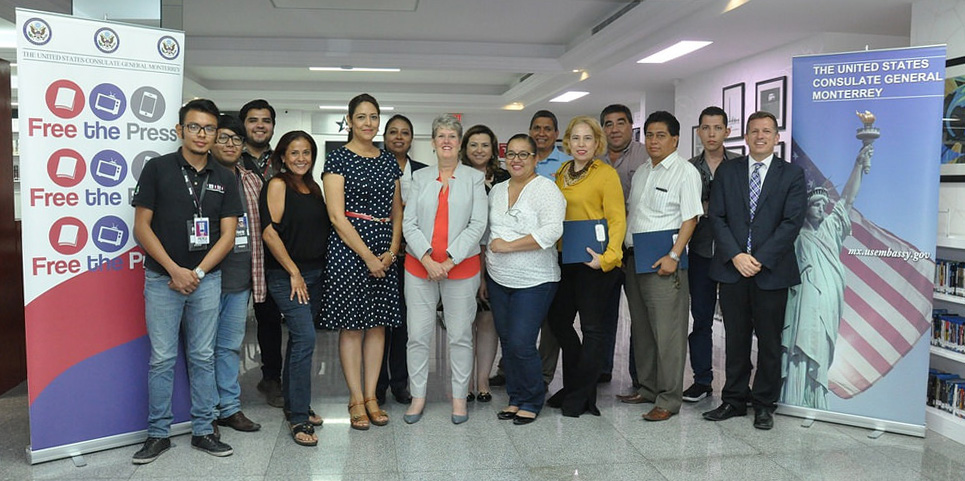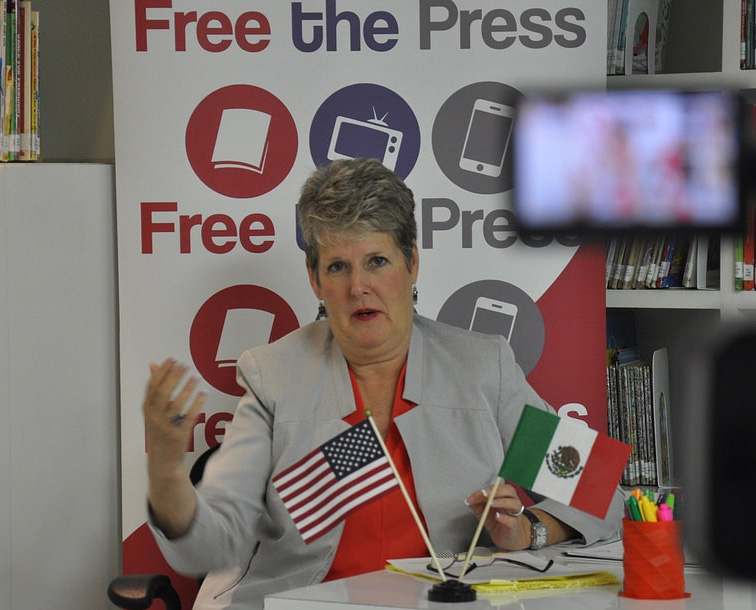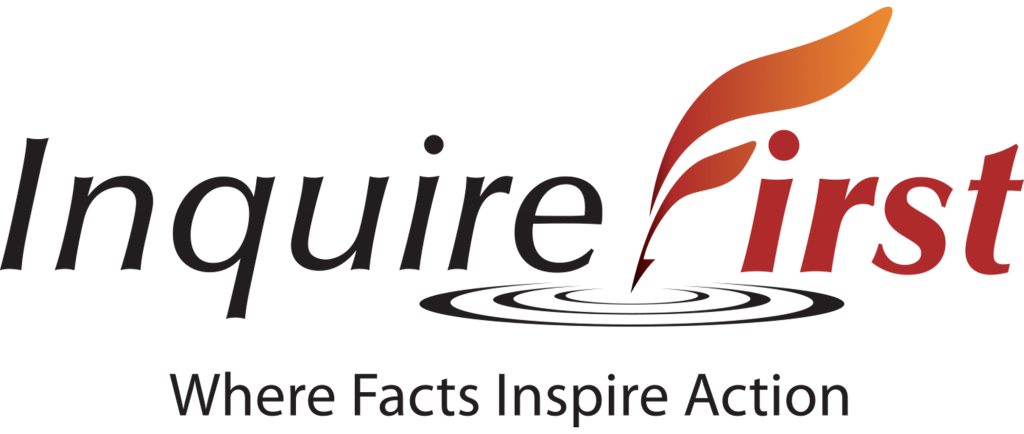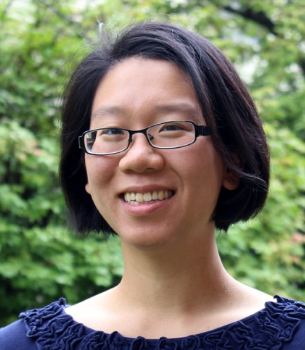
Executive Director Lynne Walker travels to 5 Mexican states to instruct journalism workshops
S. Lynne Walker, executive director of InquireFirst, traveled to five Mexican states in September 2016 to instruct a series of investigative journalism and digital journalism workshops for reporters, editors, students and professors.
More than 150 journalists, university students and professors in Chihuahua, Nuevo Leon, Saltillo, Jalisco and Michoacan attended the journalism training sessions, which were organized by U.S. Consulates in Guadalajara, Monterrey and Ciudad Juarez and instructed by Walker in Spanish.
In Chihuahua City, Walker instructed a six-hour workshop over two days for print, radio and broadcast journalists, some of whom traveled several hours from distant cities to attend. The workshop focused on three key subjects: investigative reporting techniques, interview and writing techniques and an internationally accepted code of ethics for investigative reporters.
Walker also led a workshop on financing methods for on-line investigative promotes journalism. And she met with members of the Free Journalism Network (Red de Periodismo Libre), which promotes professional development while strengthening the investigative skills of colleagues covering crime and corruption.
In Coahuila, Saltillo, Walker led a Free the Press seminar that consisted of an interactive workshop attended by more than 40 journalists on developing an investigative story. More than 200 undergraduate students of communications, psychology, social work and social sciences at the Autonomous University of Coahuila, a state university founded in 1957, attended a lecture by Walker on “Borders, Migration and Investigative Reporting: Telling the Complex Story of International Migration.” Walker also met with academics and faculty to discuss the curriculum of the university’s new journalism program.
Walker instructed a virtual session with journalists in Nuevo Laredo and Matamoros as well as a seminar at the Benjamin Franklin Library in Monterrey with journalists from Monterrey, Saltillo and San Luis Potosi.

During the dynamic, interactive sessions, Walker worked with journalists on interview techniques to help them drill down on investigative subjects and get information for detail-rich, well-sourced investigative reports. Walker then worked with journalists on ways to organize the complex material into compelling investigative stories.
In Morelia, Michoacán, Walker met with approximately 25 reporters and editors to help them develop new ways of identifying credible sources for their investigative reports and focused the session on working with journalists to develop a story on international organized crime.
At Lake Chapala, Walker led a round-table discussion with regional/rural reporters who talked about the challenges they face in presenting credible news coverage.
Some 35 journalists at El Informador, Guadalajara’s newspaper of record, attended an interactive workshop led by Walker, who then met with the paper’s top editors about the future of print media in Mexico.
The final two days of the program were conducted in collaboration with the University of Guadalajara’s Digital Journalism Center. The program focused on reporting, organizing and writing investigative stories, journalism ethics and new financial models for online investigative journalism. Walker also conducted one-on-one consultations with the journalists participating in the program.

